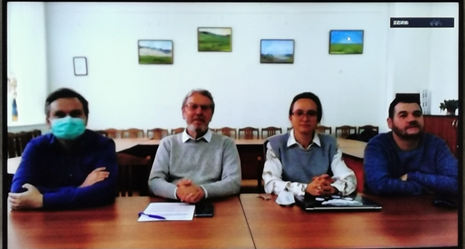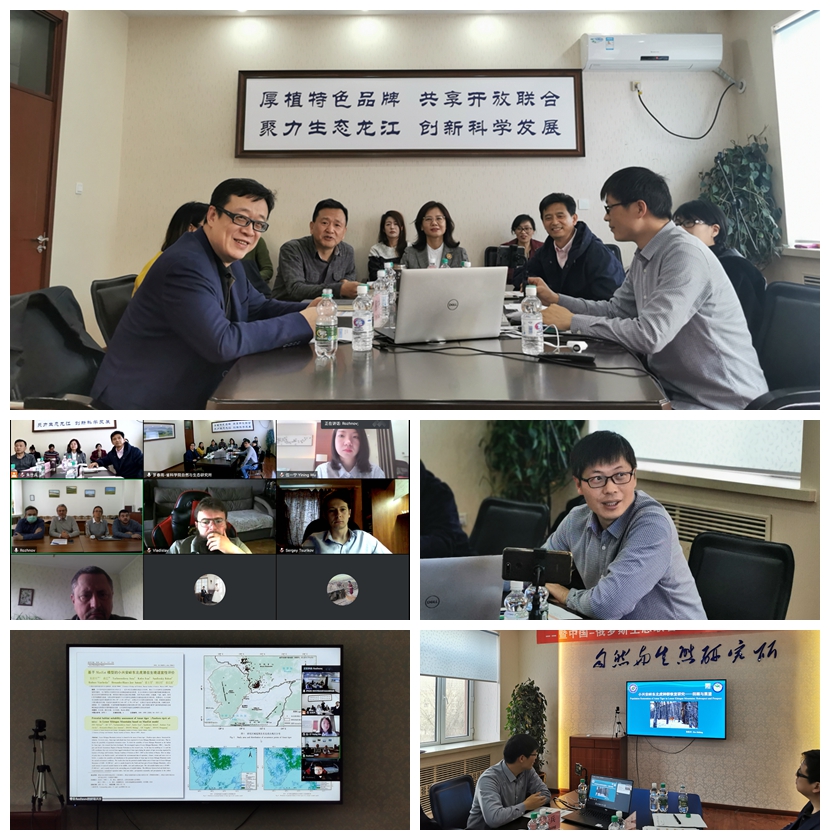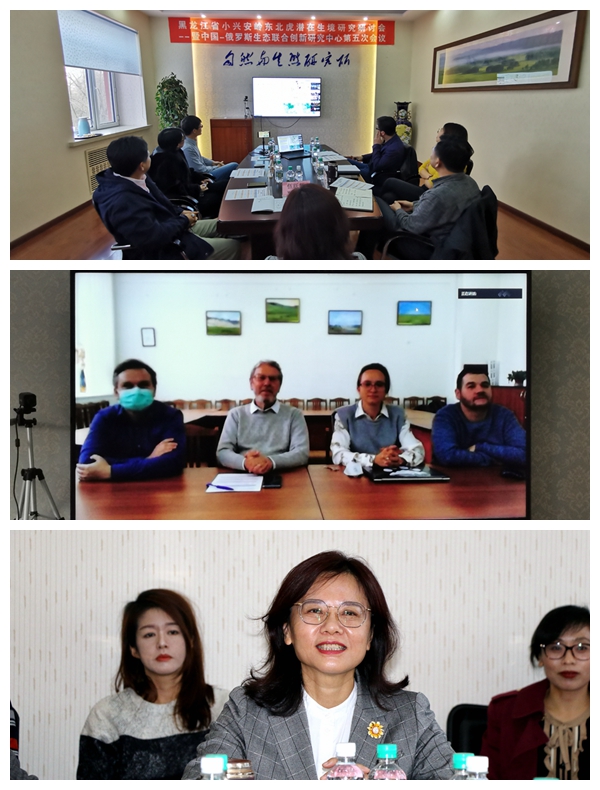
On October 26, 2020, the event took place in a series of events dedicated to the Year of Scientific and Technical Cooperation between China and Russia in the field of innovation. The seminar was devoted to the assessment of the suitability of habitats in the territory of the Lesser Khingan mountain range (Heilongjiang province, China) for the Amur tiger. The fifth meeting of the joint Russia-China Environmental Innovation and Research Center was successfully held via remote video communication in Harbin, China, and Moscow, Russia. More than 20 Chinese and Russian experts took part in the meeting, including Academician V.V. Rozhnov, Director of the Severtsov Institute of Ecology and Evolution RAS; A.V. Tiunov, deputy director of the Institute, Wu Yuehui, vice president of the Heilongjiang Academy of Sciences; Liu Zhizhong, Director of the International Cooperation Department, Heilongjiang Academy of Sciences; Zeng Zhaoven, Director of the Institute of Natural Resources and Ecology of the Heilongjiang Academy of Sciences.

Zhu Shibin, Researcher, and Anna Yachmennikova, Senior Researcher, Responsible Coordinators from China and Russia for the implementation of the Amur tiger restoration program in transboundary areas of the range, made scientific reports on the topic "Restoring the Amur tiger population in the mountains of the Little Khingan - an overview and prospects" and “China. Research plan and directions of work for the restoration of the Amur tiger within the range". Wu Yining, Researcher, and Professor A.V. Tiunov, responsible for the implementation of cooperation in the field of research of the ecology of soil organisms, presented a work devoted to the study of the response of the community of soil animals in forests and wetlands to global climate change, as well as modern approaches, technologies and topical problems in studies of soil zoology. Both sides took stock of the research on cooperation over the past three years and formulated plans for scientific and technical cooperation and key areas of the region for the next three years.
During the normalization of COVID-19 prevention and control measures, China and Russia are holding academic meetings through online broadcasts and coordinated and agreed on offline research programs. The successful meeting further deepened the scientific and technical cooperation of the Sino-Russian Environmental Innovation Research Center in the field of protection and restoration of the Amur tiger population, and also identified the future goals of cooperation. The results of joint work contribute to the development of an environmentally responsible civilization and the preservation of biodiversity in certain regions of our planet.

